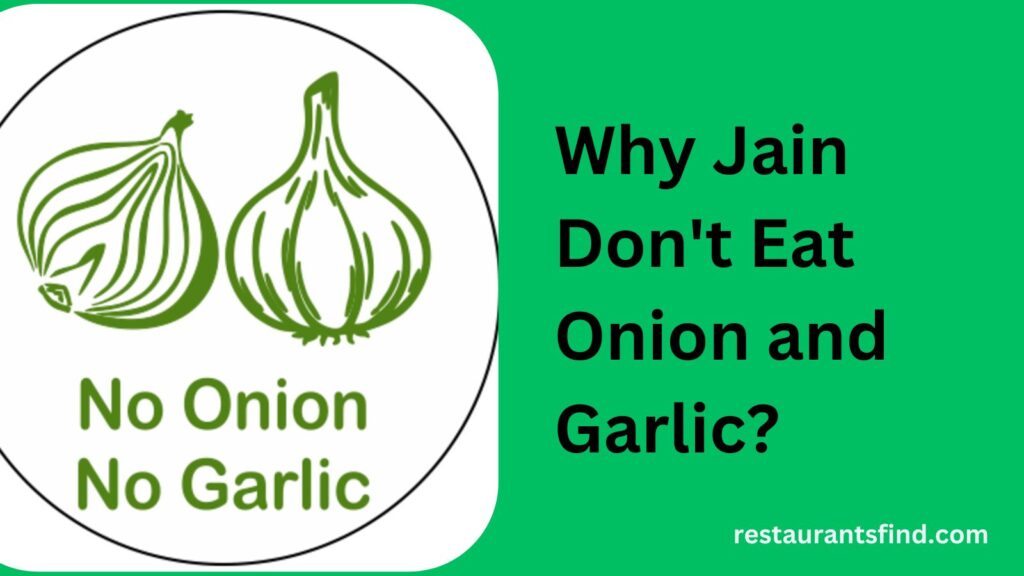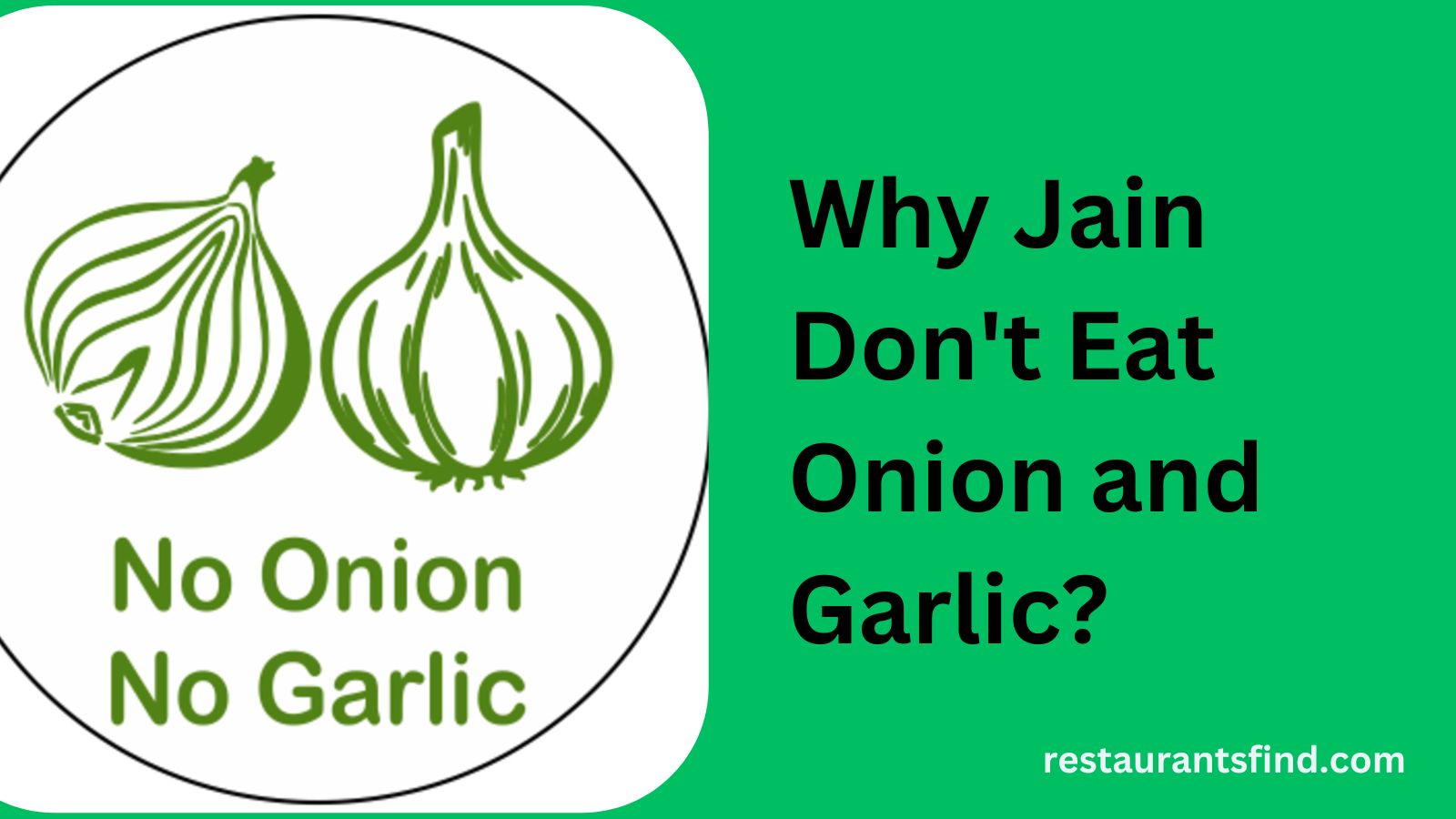Have you ever wondered why some dietary choices are more than just preferences but are deeply rooted in spiritual beliefs? Jainism, an ancient Indian religion known for its principles of non-violence and spiritual purity, offers a fascinating glimpse into such practices. One of the distinctive aspects of Jain dietary habits is the avoidance of onions and garlic. Let’s delve into the reasons behind this intriguing culinary tradition.

Reasons for Avoiding Onion and Garlic
Spiritual and Religious Beliefs
Ahimsa (Non-Violence)
At the heart of Jain’s philosophy lies Ahimsa, the principle of non-violence towards all living beings. This includes not only refraining from physical harm but also minimizing harm in everyday activities, including food consumption. Onions and garlic, believed to contain numerous microorganisms and insects, are avoided because of the harm caused when these plants are uprooted. By abstaining from them, Jains aim to live in harmony with all forms of life.
Maintaining Mental Purity
Jainism places a strong emphasis on mental purity and clarity, essential for spiritual growth and meditation. Onions and garlic are considered to have strong and stimulating properties that can agitate the mind and disturb one’s meditative state. Therefore, avoiding these ingredients is seen as conducive to maintaining inner peace and spiritual focus.
Health and Dietary Reasons
Tamasic Nature of Onions and Garlic
In Ayurvedic and Jain dietary principles, foods are categorized based on their effects on the body and mind. Onions and garlic fall under the category of ‘Tamasic’ foods, which are believed to increase ignorance and lethargy. Consuming these foods is thought to cloud the mind and hinder spiritual progress.
Impact on Digestion and Well-being
From a health perspective, onions and garlic are known to stimulate the senses and digestion, which can be undesirable for those seeking a balanced and tranquil state of being. Jain dietary guidelines aim to promote a diet that supports overall well-being and mental clarity, which excludes foods that may disrupt this balance.
Historical and Cultural Context
Evolution of Dietary Practices
The avoidance of onions and garlic has been a part of Jain dietary practices for centuries, rooted in ancient traditions and teachings. Over time, these practices have become integral to Jain cultural identity, reflecting a commitment to spiritual purity and ethical living.
Cultural Influence and Community Practices
Within Jain communities, adherence to dietary restrictions is not only a matter of personal choice but also a communal practice that reinforces shared values and beliefs. Families pass down these traditions through generations, preserving cultural heritage and maintaining a sense of unity among believers.
Therefore, the reason Jains avoid consuming onions and garlic stems from their core principle of Ahimsa (non-violence) in Jain dharma. However, their dietary restrictions go beyond this. Jain vegetarianism defines a unique approach by excluding certain vegetables altogether. Let’s delve into the reasons behind these specific prohibitions.
What is Jain Vegetarianism?
Jain vegetarianism is one of the most rigorous forms of vegetarianism, guided by the principles of non-violence and purity. This diet excludes not only meat, fish, and eggs but also root vegetables like onions, garlic, potatoes, and carrots. The rationale behind this is to minimize harm to the smallest living beings and to avoid uprooting plants, which leads to their destruction.
Core Principles of Jainism
Ahimsa (Non-Violence)
As we discussed above, Ahimsa is the heart of Jain philosophy. It is the principle of non-violence towards all living beings. This includes not only refraining from physical harm but also minimizing harm in everyday activities, including food consumption. Onions and garlic, believed to contain numerous microorganisms and insects, are avoided because of the harm caused when these plants are uprooted. By abstaining from them, Jains aim to live in harmony with all forms of life.
Satya (Truth)
Jainism emphasizes the importance of truthfulness in every aspect of life. This principle encourages honesty and integrity, extending even to dietary practices, ensuring that what is consumed aligns with the truth of non-violence and purity.
Asteya (Non-Stealing)
Asteya promotes respect for others’ property and rights. In the context of food, it means not taking more than what is needed and being mindful of the impact of one’s consumption on the environment and other living beings.
Brahmacharya (Chastity)
This principle advocates for control over one’s desires and actions. In dietary terms, it means consuming food that supports a balanced and controlled lifestyle, avoiding items that may stimulate excessive desires, such as onions and garlic.
Aparigraha (Non-Possessiveness)
Aparigraha encourages detachment from material possessions and a focus on spiritual growth. By practicing restraint in diet, Jains cultivate a sense of contentment and reduce attachment to worldly pleasures.
Alternatives and Modern Adaptations
Creative Culinary Solutions
Despite the restrictions, Jain cuisine thrives with a rich variety of flavors and textures. In place of onions and garlic, Jains use a diverse array of spices, herbs, and alternative ingredients to create delicious and wholesome dishes. This adaptation showcases the ingenuity and culinary artistry within Jain’s cooking traditions.
Contemporary Perspectives
In today’s globalized world, Jain communities continue to adapt their dietary practices while staying true to their spiritual principles. Modern interpretations of Jain cuisine offer innovative approaches that cater to diverse tastes and preferences, demonstrating the resilience and relevance of ancient traditions in a changing society.
Conclusion
Why Jain Don’t Eat Onion and Garlic? The clear answer to this question is that they must avoid onions and garlic because of their dietary choice. In Jainism is not merely about personal preference but a profound expression of spiritual commitment and ethical values. By embracing Ahimsa and striving for purity in thought and action, Jains uphold a tradition that resonates deeply with their beliefs and enhances their spiritual journey. As we explore the reasons behind these culinary customs, we gain insight into the intricate tapestry of Jain philosophy and the enduring legacy of its teachings on non-violence and compassion.
In essence, the decision to omit onions and garlic from their plates is a testament to the enduring wisdom and cultural richness of Jainism, offering us all a deeper appreciation for the interconnectedness of food, spirituality, and holistic well-being.

